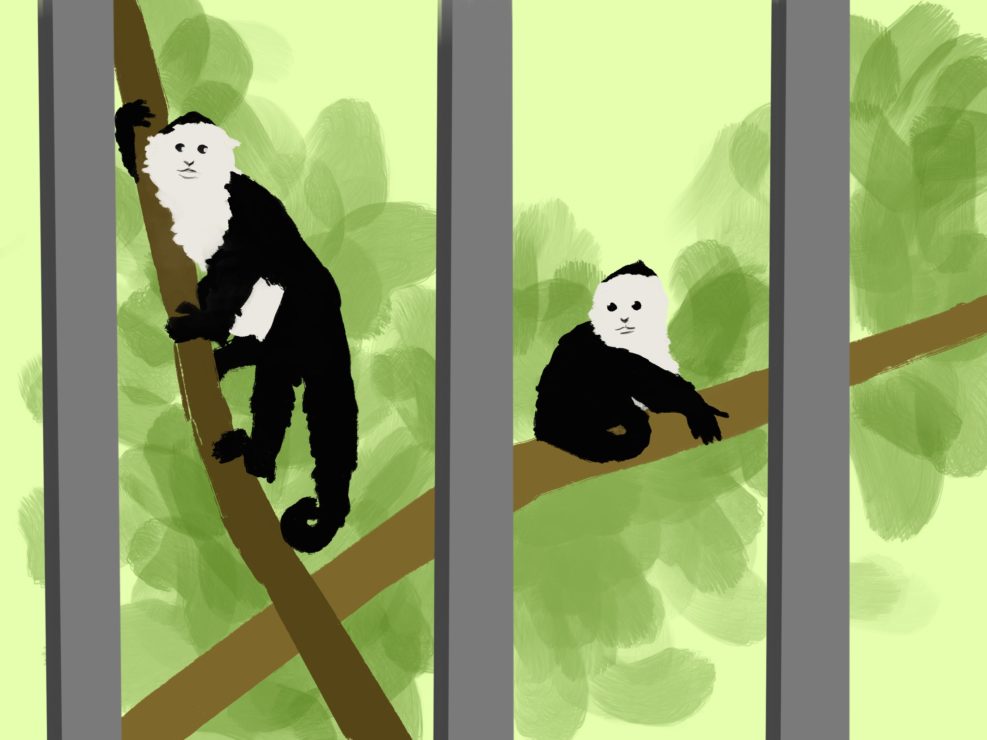Tigers are illegal in B.C., but animal cruelty remains an issue

With North Americans spending more time at home lately, more and more people are switching on Netflix to watch Joe Exotic in the hottest quarantine show — Tiger King.
The show revolves around Exotic and other private tiger owners in the U.S., and their trials and tribulations with Carole Baskin, the owner of a big cat sanctuary in Florida. With polygamy, a presidential run, and pet tigers, it’s one that proves the adage true: reality can be stranger than fiction.
Watching this show, I couldn’t help but wonder — could there be a “Tiger King” right here in our midst?
I started looking into B.C.’s animal rights laws. Although I approached this article thinking that there was no way anyone as crazy as Joe Exotic could live here in B.C., I quickly realized that the broader issues in the show of private ownership of exotic pets occur here, too.
In B.C., it is illegal to own tigers without a license, and licensing is very restricted. The law was enacted after Tanya Dumstrey-Soos’s tragic death. She was killed by a tiger at a private zoo and animal entertainment company called Siberian Magic near 100 Mile House in 2007.
This tragedy, and the corresponding law, came after years of efforts by the BC SPCA and other animal rights groups questioning the zoo. In 2005, the BC SPCA began investigating Siberian Magic while lobbying the province to pass legislation against these kinds of parks. The Vancouver Humane Society also voiced their opposition to the zoo’s practices, after visiting it in 2006.
Siberian Magic no longer exists, but the SPCA continues to see cases of animal cruelty throughout the province. Today, the BC SPCA says there’s a loophole in the current law in that it doesn’t include serval cats, which are 45-pound small wildcats from Africa.
Sara Dubois, the SPCA’s Chief Science Officer, has chosen not to watch Tiger King because it hits too close to home.
“The Tiger King and other documentaries are very clear in showing that there is a lot of animal abuse and cruelty that goes on in these types of facilities,” Dubois said. “I think people assume that this is a non-issue that only happens in crazy places in the U.S., but in fact it does happen still in Canada and there’s still a lot of work that can be done.”
Just last year, 13 serval cats were taken by the SPCA from a property near Kamloops and their owners were charged with animal cruelty. Since there are no accredited big cat sanctuaries in Canada, the animals were transported to one in the U.S.
“This is real. Yes, [Tiger King] is made for TV production but this is the real lives of those animals,” Dubois said. “The reality is that in most places there are no laws against it. You’re empowered now to help make that happen.”
The BC SPCA is still working hard, amid COVID-19, to care for animals and respond to animal cruelty. On April 9, they responded to an emergency situation where multiple German Shepherd puppies were maltreated and abandoned. Horrifying images show the puppies’ eyes shut due to infection, and the BC SPCA is currently raising money to cover their veterinarian costs.
I wanted to learn more about the people that do keep animals in captivity in B.C., so I reached out to all of the zoos I could find on TripAdvisor and only one got back to me — the small but memorable Victoria Bug Zoo. I spoke with Karlee Friesen, the zoo’s outreach manager.
Like Dubois, Friesen also stressed how important it is not to support animal-related tourism like posing with tigers.
“Everyone that works here, including those that we had to lay off because of COVID-19, loves animals,” Friesen said.
When she was watching the show, Friesen was reminded of their own “Tiger King” moment at the Bug Zoo a few years ago, when they obtained a few spiders and millipedes which were taken from a hoarder in Surrey. Afterwards, Friesen said their social media and inboxes were filled with comments from people associated with the hoarder questioning their zoo’s legitimacy.
Now, the comments have subsided and the bugs are doing well in their new home.
The female ghost mantises at the zoo will sometimes eat their boyfriends while they are mating — Friesen said Carole Baskin reminds her of a ghost mantis.
“We want kids to be educated, and we want people to not be afraid of these animals,” Friesen said. “Even something as small as a black widow is really important for our environment.”
Friesen said the main risk with people owning bugs in Victoria is that they can accidentally introduce an invasive species to B.C. At their zoo, they have to obtain permits for exotic bugs.
For Dubois and the BC SPCA, education is key.
Their hope is that people watching the show are motivated to educate themselves about the laws in their jurisdiction and how they may fall short.
For instance, here in B.C. it is still legal for the film industry to bring in big cats for shows. Although we now have the CGI available to create realistic animals on screen, Dubois said some films still opt to bring big cats onto their sets.
The BC SPCA advises people to only visit accredited sanctuaries — like Carole Baskin’s Big Cat Rescue.
Although Dubois said she understands why people are looking for escapism right now and watching Tiger King, she hopes it leads people to think critically about the welfare of the animals on screen.
“People need to ask a lot of questions about what’s happening with these animals once the show wraps up.”






